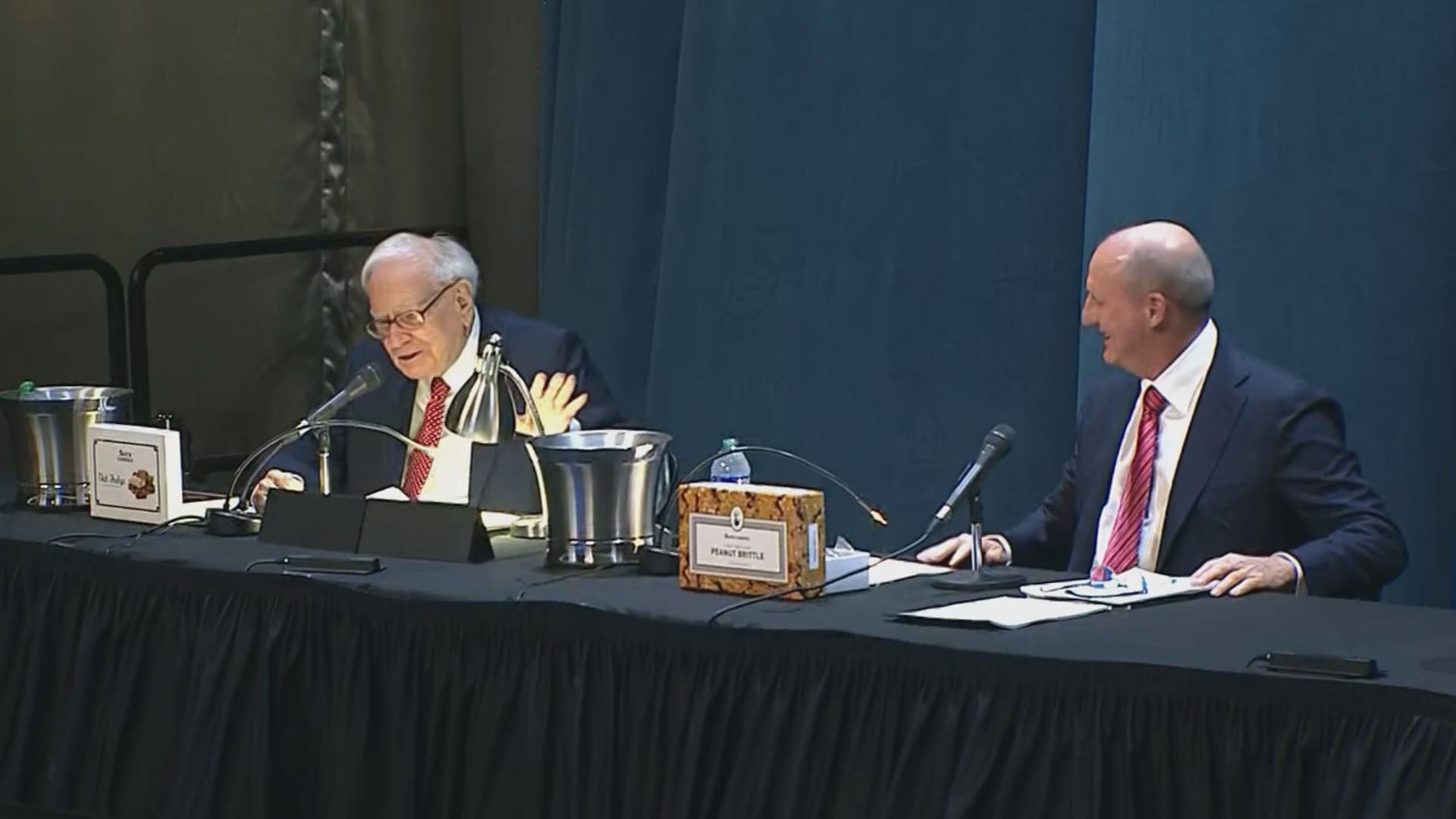OMAHA, Nebraska — Many Berkshire Hathaway shareholders left this past weekend’s annual meeting pondering Warren Buffett’s big revelation about succession. The Oracle of Omaha on Saturday told an arena full of shareholders that his designated successor Greg Abel will have the final say on all of Berkshire’s investment decisions when Buffett is no longer at the helm. “I would leave the capital allocation to Greg … he understands businesses extremely well,” Buffett said. “If you understand businesses, you’ll understand common stocks.” That single comment sparked a lot of conversation among Buffett’s loyal followers. Some interpreted it to mean that Abel, vice chairman of noninsurance operations, will not only make acquisitions in the future, but will also pick stocks for Berkshire’s $360 billion equity portfolio. Others think Abel will be more likely to delegate the responsibility of stock selection. “I think he wanted to leave room for Abel to make his own decisions in terms of who will make stock portfolio decisions, how much of the investment portfolio to allocate to stocks and so on,” Haruki Toyama, portfolio manager at Madison Investments, a Berkshire shareholder, told CNBC. “Buffett has always said that the CEO needs to be the ‘chief risk officer’ at any firm, and for that to be the case, there has to be clear accountability at the top,” Toyama added. Buffett’s investment lieutenants, Todd Combs and Ted Weschler, have independently managed about $15 billion each for Berkshire over the past decade. Many had speculated that those two former hedge fund managers would eventually take over the entire portfolio. Buffett hasn’t disclosed their track record in recent years, however. The pair have also been helping Berkshire close deals. Additionally, Combs is the CEO of Geico, the crown jewel of Berkshire’s insurance business. “The Abel news was a twist on the view that the duties would be split between capital allocation and stock selection,” said Bill Stone, Berkshire shareholder and CIO at Glenview Trust who was attending his 20th Berkshire annual meeting. ‘Used to think differently’ Abel, 61, became known as Buffett’s heir apparent in 2021 after Charlie Munger inadvertently made the revelation at that year’s shareholder meeting. Abel has been overseeing large swaths of Berkshire’s sprawling empire, including energy, railroad and retail, but is known for his expertise in energy, having worked at the predecessor of Berkshire Hathaway Energy since 1992. Buffett, who’s turning 94 in August, admitted himself that he’s changed his mind about the succession plan, noting that his decision is influenced by how much Berkshire’s assets have grown. “I used to think differently about how that would be handled, but I think that responsibility should be that of the CEO and whatever that CEO decides may be helpful,” Buffett said. “The sums have grown so large at Berkshire, and we do not want to try and have 200 people around that are managing a billion each. It just doesn’t work.” In addition to Berkshire’s enormous equity portfolio, its pile of cash grew to nearly $189 billion at the end of March. Buffett’s “answer …. was significant in that it consolidates a lot of power around Abel,” Cathy Seifert, Berkshire analyst at CFRA, said in a note. “Throughout the meeting several questions related to succession-related issues arose. I clearly got the sense that the firm was sensitive to this issue.” ‘Will not miss a beat’ The immediate reaction in the stock market was positive. Class A shares climbed 0.6% on Monday following the weekend headlines, including succession, a surge in operating earnings and the record cash hoard. UBS Berkshire analyst Brian Meredith, one of the only few on Wall Street covering the conglomerate, gave a vote of confidence after the annual meeting. BRK.A 1Y mountain Berkshire Hathaway “While we believe BRK’s shares may go down some when Buffett is no longer CEO, it is clear to us that fundamentally BRK will not miss a beat with Greg Abel currently taking on most of the CEO responsibilities,” he said in a note Monday. Meredith also hiked his price target on Omaha, Nebraska-based Berkshire, seeing Class A shares rising to $734,820 from $722,234 previously. The new forecast would translate into more than 20% upside and push Berkshire’s total market value above $1 trillion. “We continue to believe BRK’s shares are an attractive play in an uncertain macro environment. We estimate shares trade at a ~8% discount to intrinsic value,” Meredith said. — CNBC’s Michael Bloom contributed reporting. Read More
‘Twist’ in Warren Buffett’s succession plan raises eyebrows among Berkshire’s Omaha faithful
2024-05-06T17:51:32-04:00May 6th, 2024|


